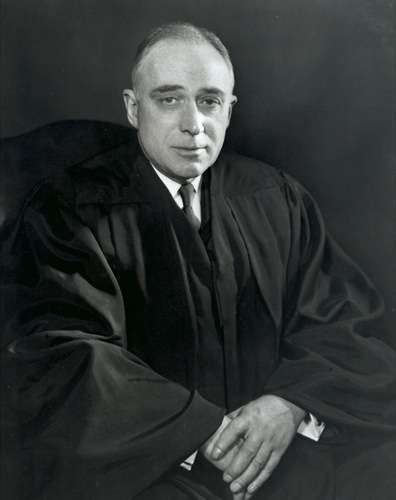The Volokh Conspiracy
Mostly law professors | Sometimes contrarian | Often libertarian | Always independent
Today in Supreme Court History: December 29, 1971
Editor's Note: We invite comments and request that they be civil and on-topic. We do not moderate or assume any responsibility for comments, which are owned by the readers who post them. Comments do not represent the views of Reason.com or Reason Foundation. We reserve the right to delete any comment for any reason at any time. Comments may only be edited within 5 minutes of posting. Report abuses.
Please to post comments



We don’t see conservatives like him any more. As principled as his grandfather.
He said the 14th Amendment's Section 1 didn't apply to voting rights, which I thought was racist heresy.
And grandpa's principles included a constitutional right of employers to fire union members.
https://en.wikipedia.org/wiki/Adair_v._United_States#Judgment
Can you think of any modern day person holding that view who you would be willing to acknowledge as principled?
He didn't tailor his reasoning to the result. Unlike, say, Scalia, whose "originalism" came and went depending on where it might lead.
I believe at the time Harlan the First was accused of precisely that.
Also, Scalia is dead, so isn't it time for him to get his share of praise from progressives who deplore how there aren't principled conservatives like Scalia anymore?
I've seen scattered praise of Scalia, comparing him to the cretins on the current court. Its too soon for it to be a consensus.
Disagreement with someone’s principles doesn’t make them unprincipled. Lenin was principled; the problem was with what his principles were
What about his vacillation about compromising with the capitalist roaders?
My point is, these "principled conservatives" have in common, not a set of principles which appeals to a progressive's sense of harmony and consistency, but the fact that they're dead or retired. Eg, William Buckley, Ronald Reagan, Barry Goldwater, George W. Bush, Mitt Romney, etc.
Consider what names they were called when they were alive and in a position to make policy.
What I'd be interested in is for progressives to get to work *now* making lists of currently-active principled opponents whom they respect (like Lenin?) and publishing those lists before the people in question leave office or leave this life.
I guess Romney isn't retired, but he redeemed himself by voting to convict Trump.
Romney? Principled?
His only principle is what is good for Mitt...
Liberals: Dead conservatives are the best kind of conservative and are superior to living ones.
And that differs from your view of dead liberals how?
"differs from your view of dead liberals how?"
When have I praised dead libs? Or used a dead lib to favorably contrast with a current lib?
And this is from his principled dissent in Miranda v. Arizona (really problematic in the era of Black Lives matter, wouldn't you think?)
"What the Court largely ignores is that its rules impair, if they will not eventually serve wholly to frustrate, an instrument of law enforcement that has long and quite reasonably been thought worth the price paid for it. 13 There can be little doubt that the Court's new code would markedly decrease the number of confessions. To warn the suspect that he may remain silent and remind him that his confession may be used in court are minor obstructions. To require also an express waiver by the suspect and an end to questioning whenever he demurs must heavily handicap questioning. And to suggest or provide counsel for the suspect simply invites the end of the interrogation....
"How much harm this decision will inflict on law enforcement cannot fairly be predicted with accuracy....We do know that some crimes cannot be solved without confessions, that ample expert testimony attests to their importance in crime control, and that the Court is taking a real risk with society's welfare in imposing its new regime on the country. The social costs of crime are too great to call the new rules anything but a hazardous experimentation."
https://caselaw.findlaw.com/us-supreme-court/384/436.html
The sequel showed more technical proficiency than the original, but the original was more exciting.
“Brennan liked to tell his clerks that Harlan had been the ‘only real judge’ on the Court in the years of Brennan’s service, the only Justice who weighed the legal issues with sufficient dispassion.” The Brethren.